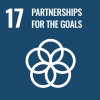IOM, Diginex, IKEA, and Tat Win Join Forces to Protect Migrant Workers in the Thai Rubber Industry

Migrant workers employed by Tat Win participating in the assessment conducted by IOM and Diginex in Songkhla, Thailand | IOM, 2021
Bangkok, 3 September 2021 – The International Organization for Migration (IOM), a related organization of the United Nations, and Diginex leveraged blockchain-based technology to better protect migrant workers at Tat Win Company Limited (Tat Win), a Thailand-based latex concentrate producer and exporter. The partnership is an initiative welcomed by IKEA who actively works to see development in the latex value chain.
“Globally, there has been an increasing demand for companies to demonstrate that the goods and services they produce and provide are free from labour exploitation,” said Ms. Geraldine Ansart, Chief of Mission at IOM Thailand. “This also applies to businesses in Thailand, especially after the country adopted the National Action Plan on Business and Human Rights (NAP) in 2019 to promote respect for human and labour rights among Thai businesses,” she added.
In recent years, Thailand has been one of the world’s largest exporters of natural rubber. Like other key export industries, the rubber industry is largely reliant on migrant workers.
Companies may be unintentionally involved in unethical recruitment and labour exploitation, especially if they do not monitor the recruitment and employment conditions of migrant workers across their operations. Technologies like eMin, a mobile-optimized and blockchain-based platform developed by Diginex and built on the open-source and secure Tezos Protocol, a self-upgradeable proof of stake blockchain, can help in collecting data from migrant workers.
eMin stores and protects data from being altered or destroyed, enabling the companies to audit their supply chain easily with the comfort of knowing the information cannot be changed without their knowledge.
During the project concluded on 31 August, over 100 Myanmar migrant workers employed by Tat Win shared their feedback on recruitment experiences and employment conditions through eMin, allowing the company to better understand the recruitment and labour practices in their value chain, and get a bird’s eye view of key risk areas.
At the core of the project stands the importance of implementing the ‘Employer Pays Principle’, a recruitment model where migrants do not pay for any fees or costs for their recruitment and employment, which is instead covered by the employer.
Mr. Kee Long, Director at Tat Win said that migrant workers form the backbone of Tat Win’s natural rubber latex supply chain. From tapping trees to operating production lines, they contribute to every step of their supply chain.
“Tat Win believes that the fair and equal treatment of migrant workers should be the responsibility of all employers. Elimination of risks to migrant workers can only be accomplished systematically with an unwavering commitment by employers like ourselves. Taking the lead in the industry towards higher standards for migrant workers is the only way forward towards sustainable organic growth for all stakeholders, from the smallholder farmer to the end consumer,” he added.
Mr. Kanwarpreet Singh, Sustainability Compliance Manager at IKEA Purchasing & Logistics Area South East Asia stressed IKEA’s commitment as a buyer to a responsible supply chain for rubber.
“Being responsible for the total supply chain gives us a unique opportunity to make a positive change for people, society and the planet. What we do matters, and it is equally important how we do it. For us, it is important to create a positive social impact for everyone across the IKEA value chain which includes working with others to define fair and responsible wage practices and gaining an in-depth understanding of the recruitment journey of migrant workers,” he added.
Ms. Leanne Melnyk, Head of Global Supply Chains at Diginex, noted that brands and suppliers who invest in worker voice technology are able to stay ahead of the curve by understanding and responding to worker concerns in real-time – leading to improved productivity and retention rates and more engaged employees at all levels of employment.
This initiative is part of IOM’s Corporate Responsibility in Eliminating Slavery and Trafficking (CREST) initiative, a regional partnership that aims to realize the potential of business to uphold the human and labour rights of migrant workers in their operations and supply chains.
For more information, please contact Ms. Panitee Nuykram at pnuykram@iom.int or Ms. Aleksandra Lasota at alasota@iom.int
About Blockchain and Tezos Protocol
Blockchain is a digital system of recording information in a way that makes it difficult or impossible to change. Tezos is a self-upgradable blockchain with an established history and one of the first projects to incorporate proof-of-stake - a consensus mechanism that aligns the incentives of participants to keep costs low, avoid centralization, and put network power in the hands of stakeholders.
About Diginex
Diginex is a disruptive impact tech business helping organisations to address the world’s most pressing sustainability issues, utilising the latest blockchain technology to lead change and increase transparency.
























